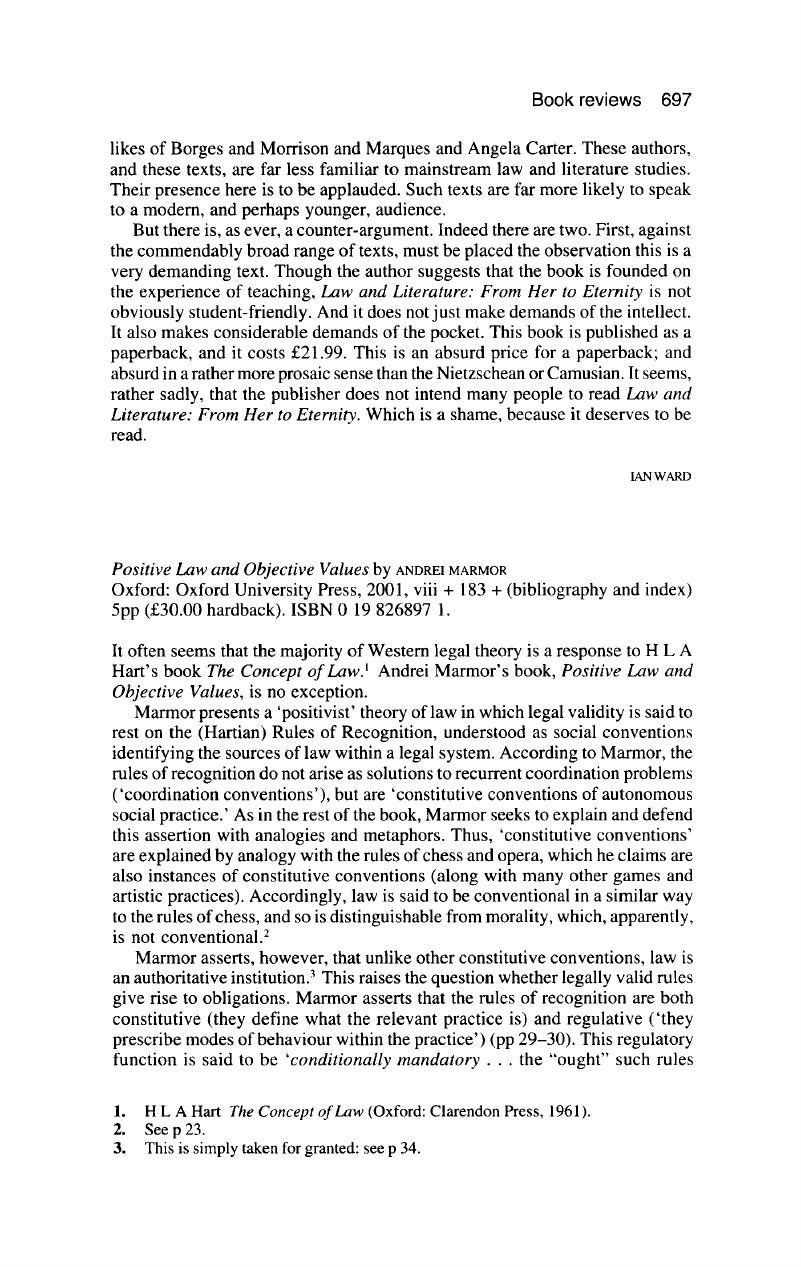No CrossRef data available.
Published online by Cambridge University Press: 02 January 2018

1. Hart, H L A The Concept of Law (Oxford: Clarendon Press, 1961).Google Scholar
2. See p 23.
3. This is simply taken for granted: see p 34.
4. Seep 31.
5. Seep 34.
6. See eg p 34.
7. Pages 48 and 50 respectively. He calls his position ‘exclusive positivism’, which he contrasts with Dworkin’s ‘anti-positivism’ and any position trying to find a rniddle-way between his and Dworkin’s position (ie ‘inclusive positivism’).
8 Thus, the debate over the separation thesis would be a mere linguistic quibble
9 For an argument against the separation thesis, see D Beyleveld and R Brownsword Law as a Moral Judgement (Sheffield: Sheffield Academic Press, 1994) (previously published London: Sweet & Maxwell, 1986). They start from the neutral referent that law is the ‘enterprise of subjecting human conduct to rules’ and purport to provide a logically necessary justification for conceptualising this referent in terms of a particular moral principle
10 Or more precisely, with the empirical features of those Western regulatory systems labelled ‘legal systems’ by the power-welding machinery of the relevant polity.
11 The first five chapters deal with the nature of social conventions, legal authority and interpretation. I have chosen not to comment on the last of these subjects in this review.
12 See pp 161-162. Marmor asserts that the subjectivist must explain why people disagree with each other if moral views are mere preferences-expressions, why we typically conceive of our moral views as applying to others, why moral propositions seem to adhere to classical logic, and why moral discourse tends to be highly structured. Surely, a subjectivist can hold these empirical features of moral discourse to be the product of a misguided understanding of the nature of moral judgments. Subjectivism is not implausible simply because it fails to fit popular beliefs about the nature of morality, unless those beliefs are shown to be rationally grounded (which Marmor fails to show).